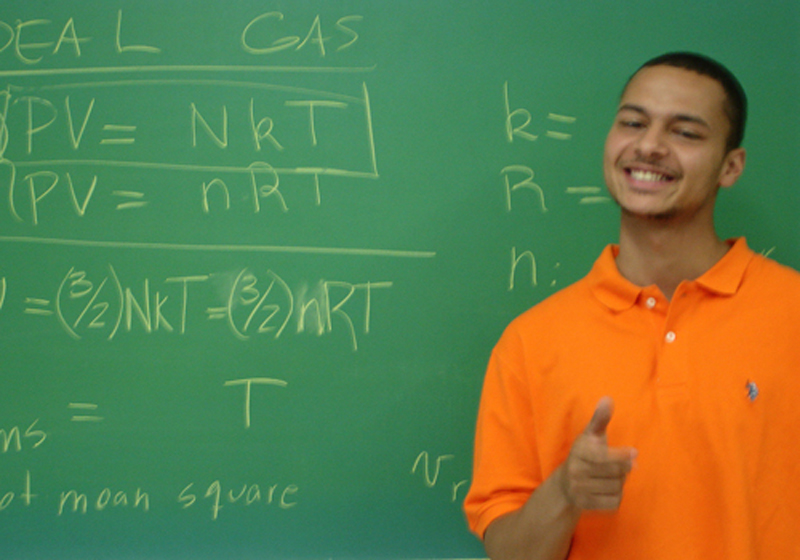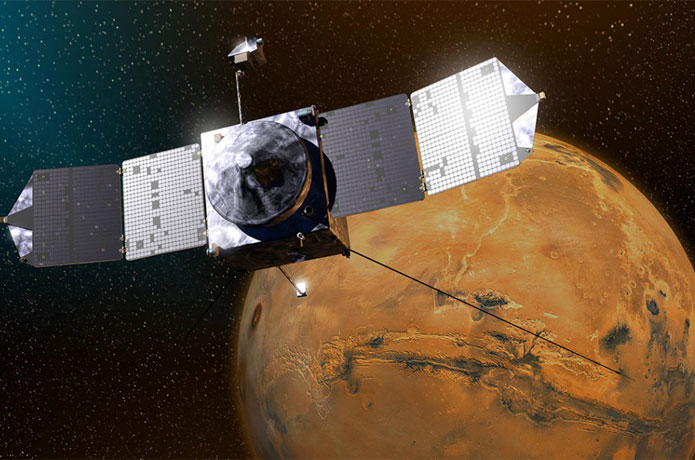Undergraduate Program
Introduction to our Undergraduate Program
At the Department of Physics and Astronomy at The University of Georgia, we prepare our students for careers in today's technological society in a number of ways. First, we offer a curriculum of physics courses that provides a thorough grounding in the fundamentals of physics and supply a foundation for further study in almost any science discipline. Second, we emphasize problem solving techniques, which are valuable in any career, in both our lecture and laboratory courses. Finally, we work with you to help tailor your program to match your post-baccalaureate career plans. We offer major programs in Physics as well as in Astrophysics, and each major program has an associated minor program. Double-major programs are also available.
You might wonder "what can I do with a physics degree?" or "how much money will I make?" or "what courses should I take?," or even "is physics really for me?" The following links might provide some answers to these sorts of questions:
Why Study Physics?
spsnational.org Want more information like this?
spsnational.org Find out what you can do with a physics degree! Explore career options, read advice, and view physicist profiles.
aps.org If you have a passion for understanding how things work and enjoy scientific experiments and mathematics, then you should study physics.
thoughtco.com Consider studying physics because physics is the most fundamental of sciences. There are more reasons why everyone should study physics.
Careers
spsnational.org Solving difficult theoretical constructs, mastering hands-on experimental techniques, wrangling data acquisition and analysis, and developing skills in error analysis, technical writing, and computer programming are hallmarks of the undergraduate physics experience. These skills and abilities make physics students excellent candidates for a wide variety of jobs. If you are considering entering the workforce after earning a bachelor’s degree, the nine tools in the Careers Toolbox can help you discover your options and prepare for success.
careers.aps.org Employers and job seekers for science jobs, engineering jobs, and technology jobs
aip.org This is a compilation of some of our most popular resources on employment for physics PhD and bachelor’s degree recipients. Included are data on fields of employment, sectors of employment, salaries, and knowledge and skills used by recent graduates. This compilation also provides information on the proportion of physics bachelor’s degree recipients pursuing graduate study in physics, astronomy, and other fields.
Physics and Astrophysics at UGA
Our Department has 22 faculty members who conduct experimental, theoretical, and simulational research in condensed-matter physics, astronomy and astrophysics, nanotechnology, atomic and molecular physics, optics, nuclear physics, and physics education. Much of the research is conducted on-campus, and several undergraduates participate each year.
For more information on the undergraduate Physics program at UGA, contact Professor Michael Geller.
For more information on the undergraduate Astrophysics program at UGA, contact Professor Loris Magnani.
More Links for Students
physlink.com Welcome to PhysLink.com - the physics and astronomy online portal! We feature latest physics news and editorials, extensive science reference and constants section, education section where you can ask our experts any physics or astronomy related question. Also, don't miss our fun page and our online science store.
compadre.org Are you a student looking for a summer research experience or internship? Are you a provider of such experiences? This is where you can search for summer research and internship opportunities or post opportunities for students to search.





/thoughtCo_pin_img_default-58a21e1638e9b32984d5b865.png)




